A story for kids is more than just entertainment, it is a window into imagination, values, and lifelong learning. From timeless moral stories in English to fun fairy tales, stories help young children make sense of the world around them. They spark curiosity, nurture language skills, and teach values in a way no lecture can. At EuroKids, we understand how important stories are in early childhood, which is why we bring together some of the best short stories for kids with morals to support parents and educators in teaching with joy.
Explore 40 Short Stories For Kids with Morals and Pictures
Here are 40 short stories for students in English:
1. The Hare and the Tortoise
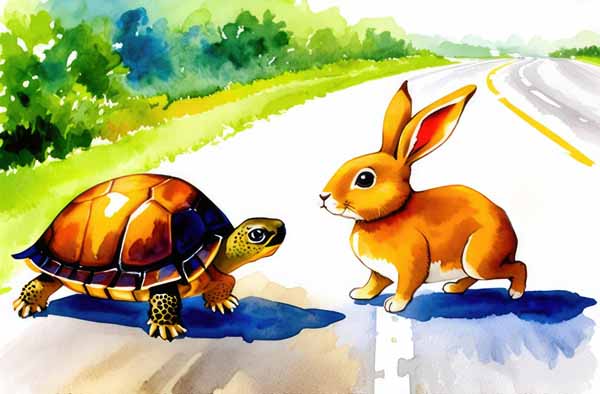
This small story in English teaches the timeless lesson that arrogance can cost you victory. A boastful hare challenged a slow but determined tortoise to a race. Confident in his speed, the hare dashed ahead and decided to nap in between the race. He was overconfident that he would easily defeat the tortoise. Meanwhile, the tortoise kept a steady pace toward the finish line. When the hare woke up, he saw the tortoise nearly winning. He sprinted with all his speed, but it was too late. The tortoise had already crossed the line. This is one of those short stories for students in English that proves steady effort often beats speed when paired with overconfidence.
Moral of the story: Slow and steady wins the race.
2. The Dog and the Bone

Alt text – The Dog and the Bone Story For Kids
One day, a stray dog found a big, juicy bone and decided to enjoy it by the river. As he looked into the water, he saw his own reflection and mistook it for another dog holding a larger bone. Driven by envy, he snapped at the “other” dog to take it. In doing so, he dropped his own bone into the river and lost it forever. This is one of those short stories for students in English that highlights how wanting more can make us lose what we already have.
Moral of the story: Envy will make you lose what you already possess.
3. The Boy Who Cried Wolf

This is the story of the shepherd boy in a village. He cried out, “Wolf! Wolf!” as a joke to get attention from the villagers. The villagers rush to help him. They get angry upon seeing no wolf. The boy laughed at them, but he got scolded in return. The boy continued this once more, and the entire thing repeated once again.
Third time, to the boy’s surprise, a wolf appears. This time, the villagers did not help even after the boy shouted for help. Later, the villagers found out about the incident and saw the boy crying who had lost his sheep. Later, an old man confronted him and said that people will not believe a liar even when he tells the truth.
Moral of the story: Nobody believes a liar, even when he speaks the truth.
4. The Golden Touch
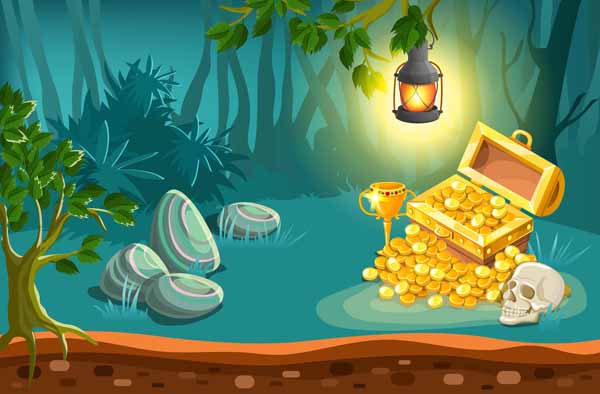
This story is based on King Midas from Greek mythology, known for his greed. After showing kindness to Silenus, King Midas was granted a wish by Dionysus. Midas wished that everything he touched would turn into gold. At first, he celebrated his gift, turning objects into treasure. But soon, his joy faded, his food turned to gold, and even his daughter became a statue.
Moral of the story: Greed will always lead to your downfall.
5. The Thirsty Crow
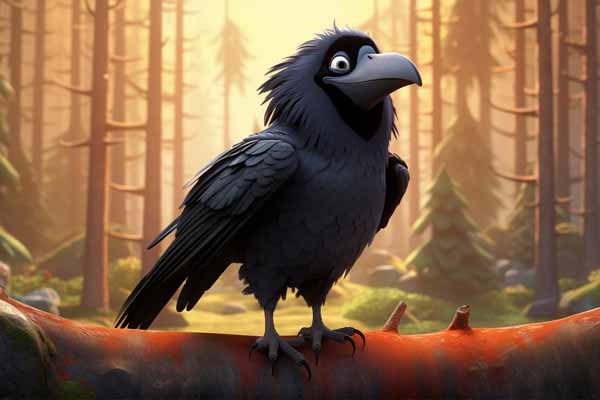
Alt text – The Thirsty Crow Story For Kids
Once a crow was travelling for a very long time and felt thirsty. The crow found a pitcher with water inside, but it couldn’t reach it. The bird tried to tip it over but failed. So, it started dropping pebbles one by one until the water rose to the top and it could finally drink water.
Moral of the story: Where there’s a will, there’s a way.
6. Lazy John

The story revolves around a boy named John. He is very lazy. He spends a sunny day lying under an apple tree, wishing for the apples to fall into his lap without making any effort to get them. As time passes, he grows hungry and frustrated when the apples remain on the branches.
John’s little sister suggests that he shake the tree to make the apples fall. This simple idea sparks a change in John, who realises the importance of taking action. He gets up, shakes the tree, and successfully catches the apples as they fall.
Also Read: Stories from mahabharata for kids
Moral of the story: Laziness will get you nowhere.
7. The Fox and the Grapes
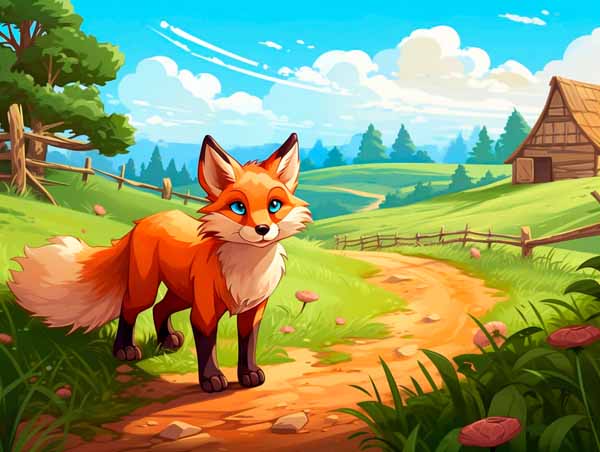
One day, a hungry fox spotted a bunch of ripe, juicy grapes hanging high from a vine. Wanting them badly, he jumped again and again, but they were just out of reach. Frustrated, the fox finally gave up and muttered, “They are probably sour anyway.” This is one of those timeless short stories in English for students that teaches us not to despise what we cannot have. In life, instead of belittling our failures, we should accept them and work harder the next time. This good story in English is a classic example of a story with a moral which teaches that honesty with ourselves is the first step to growth.
Moral of the story: Don’t hate what you can’t have, learn and try again.
8. The Rose and the Cactus

There was once a rose that took great pride in her stunning appearance. The only thing that bothered her was that she grew next to an unattractive cactus. Almost every day, the rose would make fun of the cactus’s looks. But the cactus remained silent. Other plants, flowers, and trees nearby tried to intervene and stop the rose from bullying the cactus. But she was proud of her own beauty.
The rain stopped falling for a long time. The once vibrant rose began to lose her colour and started to fade. One day, she noticed a sparrow pecking at the cactus to drink some water. Feeling embarrassed, the rose hesitated to ask the cactus for help, but eventually, she did. The generous cactus agreed, and the sparrows came to water the rose.
Moral of the story: Never ridicule anyone based on their looks.
9. The Ant and the Grasshopper
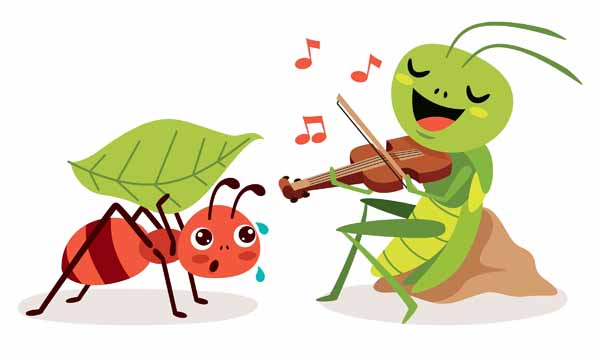
On a sunny day in late autumn, a group of Ants was busy in the warm sunlight, drying the grains they had collected over the summer. Suddenly, a hungry Grasshopper, carrying his fiddle, approached them and politely asked for some food.
Ants get shocked upon hearing that the grasshopper was busy playing the music and it did not have time to gather food.
The Ants then told the grasshopper to dance this time, in a witty way, and continued their tasks. This is a small story in English with a very valuable moral.
Moral of the story: Always be prepared for the future
10. The Ugly Duckling
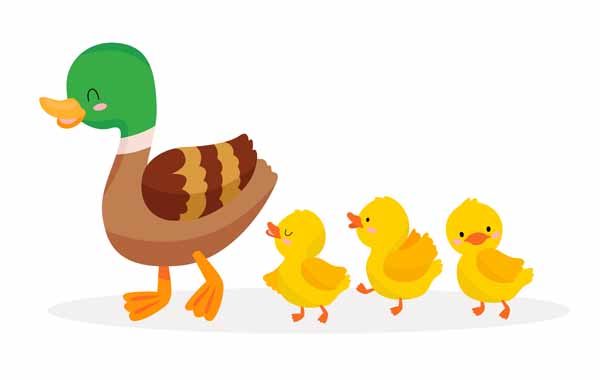
This small story in English tells the journey of a large, ugly duckling born into a family of charming yellow ducks. Though different and often teased for his white feathers, his mother praised his swimming skills and encouraged him. Feeling out of place, the duckling ran away and wandered alone for a long time. Eventually, he met a group of graceful swans who revealed he wasn’t a duck but a beautiful swan himself. This is a perfect example of story writing with morals, teaching children about self-acceptance and inner beauty. Such short stories in English for students inspire confidence and kindness, showing that what makes us different can also make us special.
Moral of the story: Never judge others on their appearance.
11. The Milkmaid and Her Pail
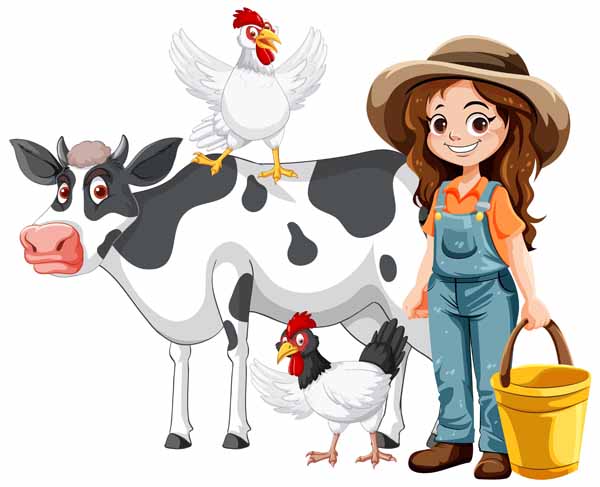
The Milkmaid had just finished milking the cows and was on her way back from the field with the shiny milk pail on her head. She was lost in thoughts about her future plans as she strolled along.
She thought that the milk would give her a good amount of butter to churn. She will sell that and use the money to buy a bunch of eggs for hatching. When May day arrives, she could sell the chickens hatched from eggs and buy a beautiful new dress from the money earned.
Lost in her thoughts, she arrogantly tossed her head, causing the milk pail to tumble to the ground. The milk spilled out, taking with it the butter, eggs, chicks, new dress, and all the milkmaid’s pride.
Moral of the story: Don’t make future plans based on things that haven’t happened yet.
12. The Wise Old Owl
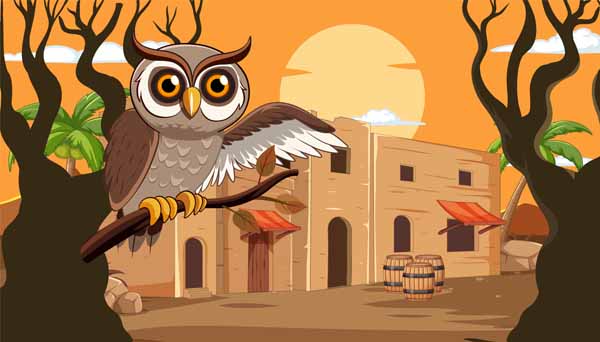
There was an old owl who lived in an oak tree, and she saw many things happening around her every day.
One time, the owl saw a boy helping an old man carry a heavy basket.
Another time, the owl saw a little girl yelling at her mother. The old owl saw a lot of things every day, but she never said anything about what she saw.
As time went on, the owl started to talk less and less, but this made her hear better. Now the owl could hear what people were saying as they walked by the trees.
One day, she heard a woman telling someone else that she saw an elephant jumping over her fence. Another day, the owl heard a young man bragging to someone else that he was perfect and never made mistakes in his life.
Every day, the old owl spoke less and listened more. Slowly, she became wiser and was known as the wise owl.
Moral of the story: Speaking less and listening more makes you wiser.
13. The Elephant and the Ants

In a jungle, a proud elephant thought he was too big to be hurt and bullied smaller animals. One day, he sprayed water on a family of ants and threatened to crush them. But a tiny ant bravely questioned him. That night, the ant sneaked into the elephant’s trunk and bit him. The elephant screamed in pain and promised never to bully others again. Such a good story in English is a great example of short story writing in English with morals, teaching that size doesn’t matter when it comes to courage and kindness.
Moral of the story: Treat others with kindness.
14. The Three Little Pigs
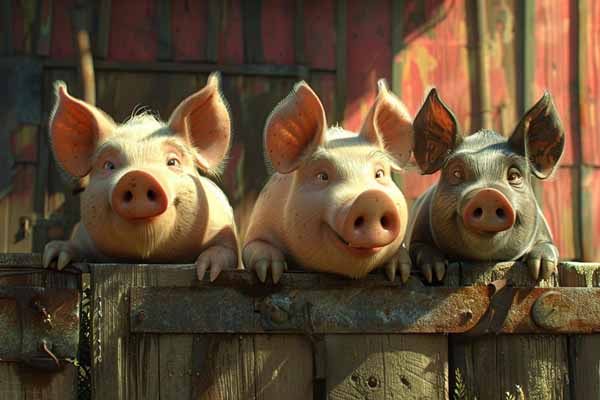
Three little pigs are sent out by their mother to start their own lives. Each pig decides to build a house. The first pig makes a house out of straw, the second pig chooses sticks for his house, and the third pig builds a strong house with bricks.
One day, a big bad wolf sees the pigs and runs after them to their houses. He tries to get inside and eat them, so they refuse, saying, “Not by the hair on my chinny chin chin.” The wolf gets angry and threatens, “Then I’ll huff, and I’ll puff, and I’ll blow your house down!” He easily destroys the straw and stick houses, but the brick house is too strong for him to blow down.
Then, the wolf tries to sneak down the chimney but falls into a big pot of hot water. He jumps out and runs away, never to be seen again, and the three pigs are safe.
Moral of the story: Hard work always pays off.
15. The Golden Egg

In a small village, there lived a man who was very poor and struggled to live. One day, someone gifted him a hen that had a special ability to lay eggs made of gold. When the man found out, he thought the hen must be full of golden eggs and would lay one every day.
His greed took over, and he ended up killing the hen, hoping to find all the golden eggs inside. But to his shock, there was nothing inside the hen. The poor man felt terrible about his actions and could never forgive himself for being so greedy.
Moral of the story: Greed destroys one’s fortune.
16. Elephant and Friends

Once upon a time, there was a lonely elephant who roamed a forest, looking for friends. He tried to befriend a monkey, a rabbit, a frog, and a fox, but they all said no because he was so large.
The following day, a tiger began to chase the animals, causing them to panic. The elephant went up to the tiger and asked him to stop bothering his friends, but the tiger wouldn’t listen. The elephant then kicked the tiger, making him run away. Seeing the elephant’s bravery, all the animals realised that he was just the right size to be their friend.
Moral of the story: Friends come in all shapes and sizes.
17. The Fox and the Stork
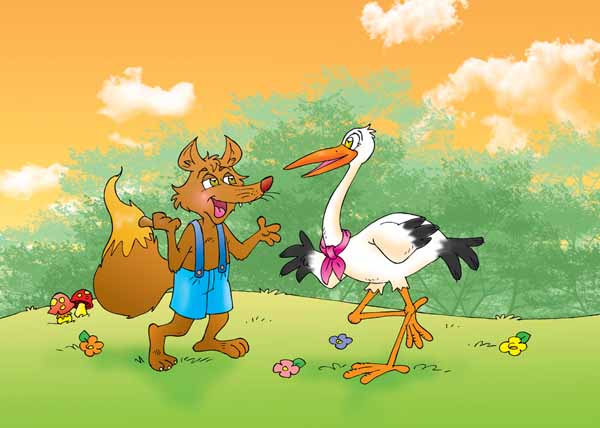
Once, a clever fox invited a stork to dinner and served soup in a shallow bowl. The fox drank easily, but the stork couldn’t because of its long beak. Later, the stork returned the favour by serving food in a narrow-necked jar, which the stork enjoyed but the fox couldn’t reach. This one short story in English with moral is a classic example of short stories in English for students that teaches the importance of treating others as you want to be treated. It’s a good story in English that highlights fairness and kindness through a simple plot.
Moral of the story: Selfishness comes back.
18. The Monkey and the Crocodile
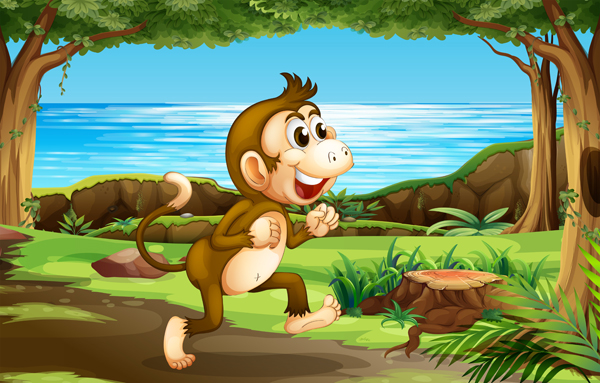
Once there lived a crocodile in a river and befriended a monkey living in a tree by the river. The monkey shares fruits with the crocodile, who takes some home for his wife. Unfortunately, the crocodile’s wife is greedy and wants the monkey’s heart. She convinces the crocodile to bring the monkey home, but the crocodile decides to stay loyal to his friend and tells him about this. The monkey then escapes by making an excuse and ends the friendship with the crocodile.
Moral of the story: Choose your friends wisely.
19. A Glass of Milk

The story revolves around a boy who worked various jobs to support his education. One day, feeling extremely hungry, he approached a house and asked a girl for a glass of water. Instead, she offered him a glass of milk, which he gratefully accepted. This act of kindness left a lasting impression on him.
Years later, the girl fell ill and was treated successfully by a doctor. The girl was shocked to know that her medical bills were paid already. A note on the bill revealed that it had been paid long ago with the glass of milk she had given to the boy.
Moral of the story: No good deed goes unrewarded.
20. The Bear and Two Friends
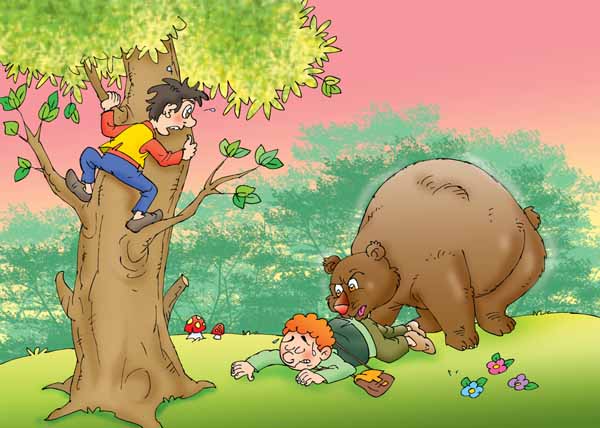
Once in a forest, two friends were walking. Suddenly, a bear attacked two friends. One friend climbed up a tree and did not offer help to his friend. Then the other friend lay on the ground without any motion. The bear sniffed and left, thinking that he was dead.
When asked what the bear whispered to him, he said ‘Never trust a false friend’.
Moral of the story: A true friend will always stand by you.
Also Read: Two Cats and a Monkey Story With Moral
21. The foolish thief
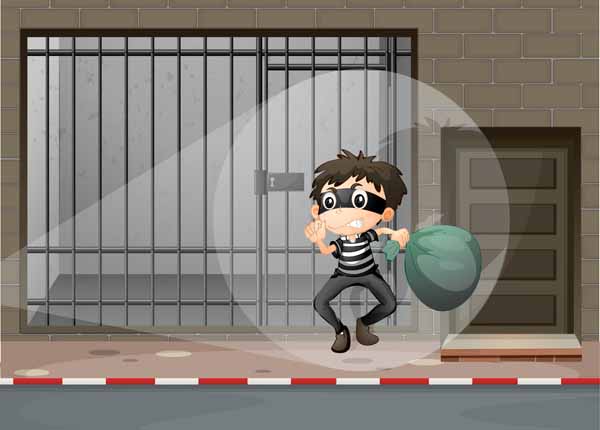
Once, a wealthy man attended Akbar’s court to get help from Birbal. He is suspicious that his servants are stealing from him.
Birbal thought of a plan. He told all the merchants’ servants that the stick would grow three inches by tomorrow if they were the thief and handed the stick over to them.
The next day, Birbal observed that one of the servants cut the stick shorter by three inches, thinking it would grow. Birbal understood this and announced the servant with the short stick as the thief.
Moral of the story: The truth will always come out.
22. The Stork and The Crab

The tale revolves around an old Stork who deceives the fish in a pond by pretending to rescue them from humans who are drying it up. Instead of leading them to safety, he takes them to a large black rock and eats them.
However, a clever Crab sees through the Stork’s trickery and seeks revenge by pinching the Stork’s neck with his sharp claws. The Crab reveals the Stork’s lies to the other pond creatures.
Moral of the story: Too much greed will only cause you harm.
23. The Miser and his Gold

Once there lived a miser who was not willing to spend his gold coins, so he kept them hidden in a pit in his garden, covered with stones. Each day, he would visit the pit and enjoy looking at his wealth. This was his daily habit.
One day, a thief noticed his routine and sneaked into the pit to steal the coins. The next day, the miser found the pit empty.
He yelled so loudly that a neighbour came over. The miser explained everything to him. The neighbour suggested that he could keep the money at home.
The miser sadly replied that he never intended to spend them. The neighbour then remarked that he might as well have placed a stone in the pit to look at every day, since the unused gold was just as worthless.
Moral of the story: Possessions are only as useful as what they are used for.
Also Read: The Talking Cave Story With Moral
24. The Puppy and The Well

A mother dog warned her pups not to go near the well. But one curious pup climbed the wall and saw its own reflection in the water. Thinking it was another pup copying its actions, the pup got angry and jumped into the well to confront it. Soon, the pup realized it was just a reflection and needed help. Luckily, a passing farmer rescued the pup. This small story in English teaches children to think carefully before acting on assumptions.
Moral of the story: Always listen to your elders.
25. The Blue Jackal

In the tale, the jackal cleverly avoided danger and gained power. He jumped into a blue dye tub, fooling the dogs into thinking he was another animal, which saved him. Later, he deceived everyone by claiming he was sent by God to become the jungle king.
However, he revealed his true self when he howled like a wolf, causing the animals to turn against him.
Moral of the story: Never pretend to be something you’re not.
26. The Mouse and the Lion
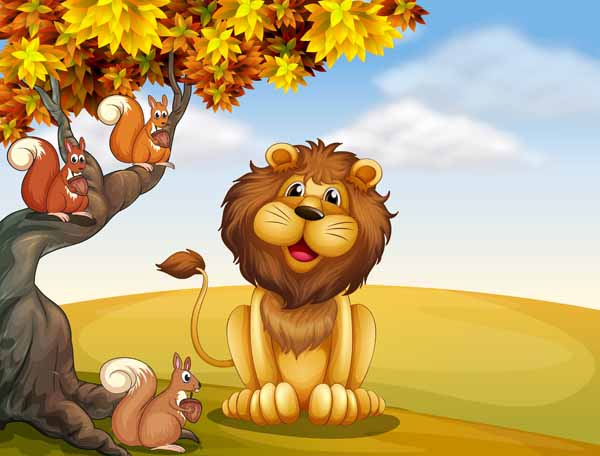
Once upon a time in the jungle, a little mouse accidentally disturbed a sleeping lion. The lion was about to kill her, but the mouse begged for her life and promised to repay the favour.
One day, the lion got caught in a hunter’s net. The mouse saw this and quickly chewed through the net and freed the lion. The lion was grateful and learned the importance of kindness and unity from this incident.
Moral of the story: A friend in need is a friend indeed.
27. The hidden treasure

An old farmer was worried his four sons were lazy and didn’t work. Nearing the end of his life, he told them he had hidden a treasure on the farm and only the best son would find it. The sons dug everywhere but found nothing. Then a stranger suggested planting seeds. They did, and soon sold the crops. The sons realised their father’s true lesson: hard work is the real treasure. This short story in English with moral for students teaches the value of effort and perseverance.
Moral of the story: No pain, no gain.
Also Read: Princess Stories for Kids to Enjoy
28. The Slave and the Lion

A slave had a cruel master. One fine day, he ran away into the forest because he couldn’t take it anymore. In the forest, he helped a lion by removing a thorn from its paw. Later, his master found him and threw him into a lion’s den. The lion turned out to be the same one he had helped, so the slave escaped death.
Moral of the story: Good deeds will always come back to you.
29. The Old Man in the Village
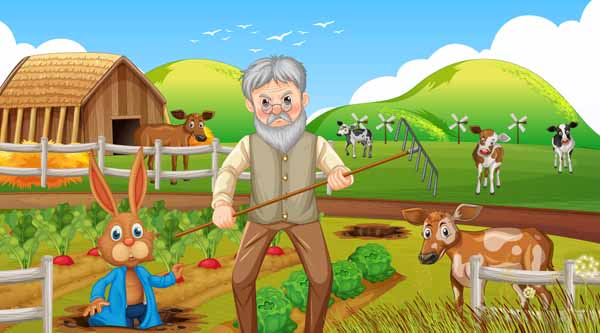
In a village, there was an old man who was always gloomy and complained a lot, making everyone unhappy. But when he turned eighty, he suddenly became happy and started smiling.
He shared that after spending eighty years chasing happiness without success, he decided to stop chasing it and simply enjoy life, which made him truly happy.
Moral of the story: Seek fun, not happiness.
30. The Wise Old Man

This is a good story in English. In a tiny village, there was a wise old man famous for his advice. A curious young boy wanted to test the old man’s smarts, so he came up with a clever plan using a little bird he would keep hidden in his hands. The boy planned to ask the old man to guess what he was holding and then trick him by asking if the bird was alive or dead. If the old man said it is alive, the boy would end the bird’s life; if he said it is dead, the boy would let it go free, proving the old man wrong.
The boy caught a sparrow and went to see the old man, who quickly recognized it as a bird because of the feathers on the boy’s clothes. When the old man was asked if the bird was alive or dead, he wisely said that it all depended on the boy’s choice, pointing out that the bird’s fate was in the boy’s hands. This answer really drove home the idea of personal responsibility and the importance of making choices.
Moral of the story: We have control over our actions and the outcomes they produce.
31. The Little Lantern

A tiny lantern shone brightly in the dark night, guiding travellers safely. Though small and often overlooked, its glow brought comfort and direction to everyone around. This story reminds us that even the smallest light can illuminate the darkest road. It’s a simple yet powerful story showing that every effort, however small, can light the way.
Moral of the story: Even the smallest help can bring great clarity.
32. The Kind Seed

In a barren field, one kind seed spread itself among the soil’s cracks. With time and gentle rain, it sprouted and shared nutrients with new shoots around it. Soon, wildflowers bloomed across the field. This good story in English is also a lovely example of short stories with morals & pictures, where one seed’s kindness leads to an entire garden’s beauty.
Moral of the story: Generosity grows far beyond its humble beginnings.
33. The Lost Ribbon

A girl lost her favourite ribbon during play. Rather than giving up, she asks friends for help while patiently searching. At sunset, her loyal dog led her to the ribbon near a bush. She was patient in her search, and she found her ribbon a gentle reminder that patience and teamwork can recover both objects and joy.
Moral of the story: Calm persistence and help from friends lead to recovery.
Also Read: Disney Stories For Kids Of All Time
34. The Wise Pebble
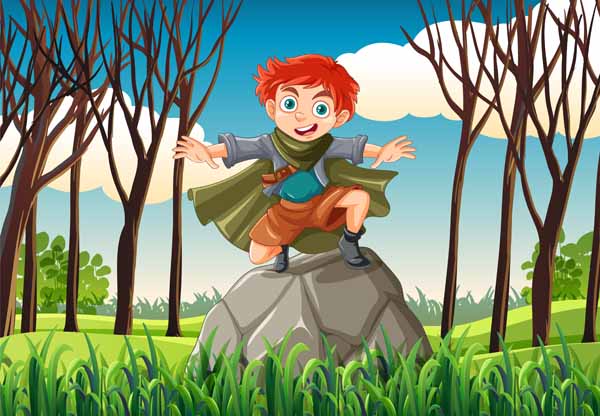
A pebble sat quietly by the pond, seeing birds, frogs, and children marvelling at its polished surface. Despite its small size, it had endured time, water, and wind to become smooth and admired. This one english short story with morals illustrates that lasting beauty often comes from perseverance, not showing off.
Moral of the story: Endurance, not pride, shapes true elegance.
35. The Sharing Raindrops
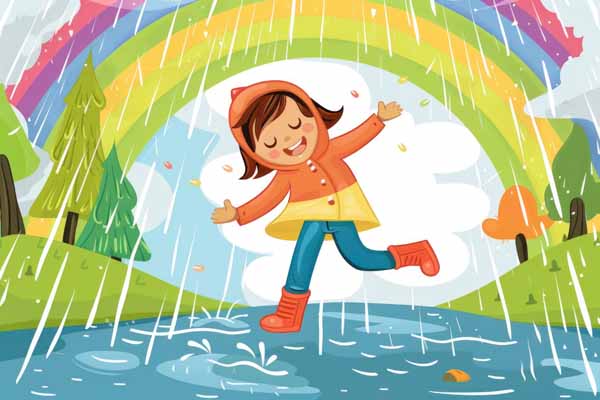
Each raindrop thought it was too small to matter. But when clouds burst, those tiny drops gathered, feeding thirsty plants and filling rivers. Alone they were insignificant, but together they brought life. This is one of the kids’ short stories that encourages teamwork and togetherness, perfect for illustrating community strength through nature’s gentle rhythm.
Moral of the story: Small contributors together create mighty change.
Also Read: Cinderella’s Story for Kids with Moral
36. The Star that Helped Ships

A lone star twinkled bright over the sea, guiding sailors safely to shore on stormy tides. Though only one among millions, its steady light meant home and warmth for many. This is an ideal short story for kids written in English with morals, where a single star teaches that consistency brings hope.
Moral of the story: Staying strong matters most when times are hard.
37. The Garden of Hope

A neglected garden began to bloom when a single person planted a seed and tended it daily. Soon, weeds turned into buds, and despair turned into delight. This good story for kids in English shows how one act of hope can transform a place and hearts into something beautiful, showing the magic in persistence.
Moral of the story: Hope planted with care brings unexpected beauty.
38. The Silver Coin

An old farmer found a silver coin in his field and decided to use it to buy seeds. That small investment grew into a bountiful harvest, which filled his pantry and fed his village. The story, perfect as short stories with morals & pictures, teaches children that even a tiny seed or coin can grow into nourishment for many.
Moral of the story: Small investments can yield abundant blessings.
39. The Unlikely Friend

A shy rabbit and a loud crow became friends after sharing food during a storm. The rabbit’s listening and the crow’s courageous song helped both escape danger and find shelter. This is any story in English demonstrating that different strengths, when combined, create lasting bonds.
Moral of the story: True friendship emerges where differences complement, not divide.
40. The Quiet Hero
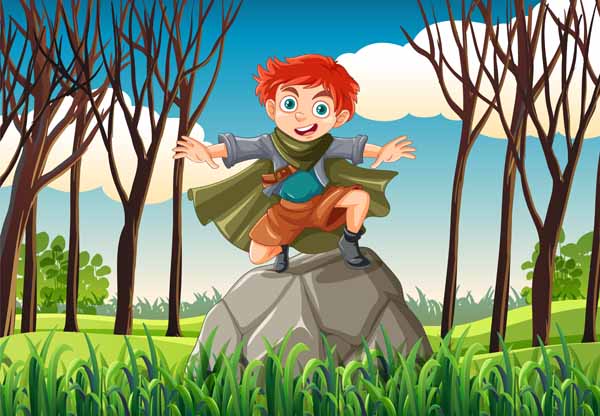
A quiet butterfly fluttered unnoticed until it flew over a flower whose colour had faded. It whispered hope to the bloom, and colour returned. Though small and silent, its care revived the flower. This short story for kids in English reminds students that gentle words can renew what seems lost.
Moral of the story: Compassion in silence can restore what words cannot.
Also Read: Indian Folk Tales For Kids With Moral Lessons
Why Storytelling and Short Moral Stories Matter for Children
A story in English with morals is a simple yet effective way to shape young minds. Unlike lectures, moral stories for kids engage emotions, helping them understand values naturally. When children revisit a short story in English, they strengthen not only their grasp of morals but also their language skills.
Parents and teachers can use stories for kids in English to develop imagination, empathy, and wisdom while making learning fun. That’s why at EuroKids, we emphasise storytelling as part of holistic development, because every moral story for kids plants seeds of kindness, honesty, and courage.
Also Read: Top Stories of Lord Krishna for Kids
Educational Value of Short Moral Stories
Reading or listening to short stories in English improves vocabulary, comprehension, and memory skills. For preschoolers, a story for kids in English is also a way to learn sentence structures and pronunciation. Research shows that storytelling supports cognitive development, emotional intelligence, and problem-solving skills. In schools and homes, using moral stories in English sessions creates a fun yet impactful learning experience.
Here are some of the best short stories with pictures and moral lessons for kids.
After all, a story becomes a great story when it’s a story with a moral lesson.
Conclusion
Each story offers valuable lessons and entertainment, making it a valuable resource for children’s literature.
At EuroKids we showcase a variety of engaging and educational tales that can surely engage young readers. Our aim is to teach moral values that shape the thoughts of growing children. For more blogs on your little one’s learning and health, check out EuroKids Blogs. Don’t forget to visit EuroKids Preschool for the first step in your child’s learning journey.
FAQs
What are short moral stories for kids?
Short moral stories are simple and engaging tales that teach young children important values such as honesty, sharing, kindness, and respect. They use easy language and relatable characters, making them perfect for preschoolers.
When should I start reading moral stories to my kid?
You can start reading moral stories as early as age three. At this stage, children enjoy short, colourful stories that match their growing attention span and help them understand basic ideas.
Why should I choose good moral stories for my kid?
Choosing good moral stories helps children learn important life lessons in a fun and natural way. These stories shape their understanding of right and wrong, build empathy, and encourage positive behaviour from an early age.
How do moral stories help children develop empathy and kindness?
Moral stories show characters facing everyday challenges and emotions. When children see these situations, they learn to understand feelings, recognise kindness, and practise caring behaviour in real life.
What kind of stories are best for young children?
For kids aged 3 to 6, the best stories are short, colourful, and easy to follow. Look for tales with clear messages, simple language, and situations your child can connect with in their daily life.
Related Blogs:
- Princess Stories for Kids to Enjoy: This blog shares enchanting princess tales perfect for young readers. From magical kingdoms to brave heroines, each story sparks imagination while teaching values like kindness, courage, and resilience.
- The Lion and the Mouse Short Story: This blog retells the timeless Aesop’s fable of a mighty lion and a tiny mouse, highlighting the moral that even the smallest acts of kindness can make a big difference. A short, engaging read for kids, it reinforces empathy, gratitude, and the power of helping others.
- Indian Folk Tales for Kids with Moral Lessons: This blog introduces children to classic Indian folk tales rich in culture and wisdom. Perfect for teaching life lessons through engaging narratives.
- Science Quiz Questions and Answers for Kids – Make science fun and engaging with a set of simple quiz questions designed for young learners. This blog helps kids test their knowledge while building curiosity about the world around them.
- List of Animals That Live On Land And Water – Introduce your child to fascinating creatures called amphibians and semi-aquatic animals. This blog explains, with examples, which animals can survive both on land and in water, helping kids connect better with nature.
















